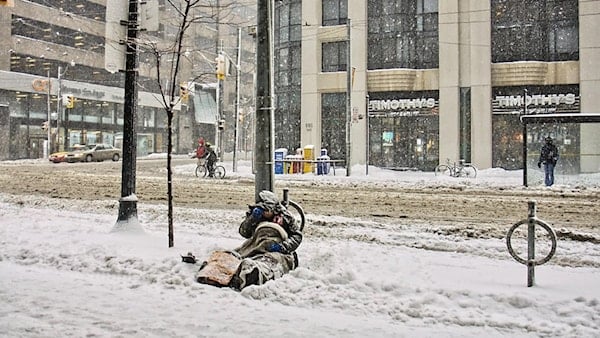Next winter will be worse than 2022 for Europe: IMF
The coming winter in Europe will certainly be difficult, but the one that follows will make it pale in comparison.
-
Europe’s energy crisis will plunge the continent into a cold winter
Europe is facing a very difficult winter this year; however, the next one will be even worse, International Monetary Fund (IMF) chief economist Pierre Olivier Gourinchas said on Tuesday, as Europe grapples with the ropes in terms of energy prices.
“The winter of 2022 will be difficult, but the winter of 2023 will probably be worse,” Gourinchas told reporters.
The chief economist also argued that Europe’s energy crisis is not a transitory shock, the geopolitical realignment of energy supplies is particularly large and permanent.
He identified various policies used by Europe, such as price controls, targeted subsidies and export bans, and explained that they could lead to further increases in prices and inflation. “They rarely work,” Gourinchas pointed out.
Member states of the Organization of the Petroleum Exporting Countries (OPEC) voted on Wednesday to cut their oil production and agreed to cut oil production by 2 million barrels a day in light of the global energy crisis .
As the global economy grapples with various challenges, he said, and “policymakers continue to normalize policy to rein in high inflation, there is a risk of a disorderly tightening in global financial conditions that could be amplified by vulnerabilities built over the years”.
After months of debate, the EU has reached an agreement to impose a price cap on Russian oil sales to third countries to block Moscow’s use of EU-registered vessels for its oil exports, while excluding pipeline deliveries from the 8th round of sanctions. on Russia, European policy reported Tuesday.
The deal was reached despite opposition from Cyprus, Malta and Greece, who had previously expressed concern over the deal due to its impact on the countries’ maritime industry and were promised concessions by Brussels which proposed measures induced by a “monitoring system” to help mitigate the effects of the embargo which could appear as a “significant loss of activity” if commercial vessels had to resort to changing their flag.
This comes as data from the association Gas Infrastructure Europe (GIE) shows that in September the rate of gas injection into European underground gas storage (UGS) facilities fell by around 30% to 0 .25 percentage points per day.
Average gas injection rates in the European SKU were 0.45 percentage point in May, 0.37 percentage point in June, 0.36 percentage point in July and 0.37 percentage point in August .
Typically, mid-October is when Europe’s heating season is expected to start, although it was delayed until November last year, meaning the coming period will be particularly difficult for Europe.


Comments are closed.